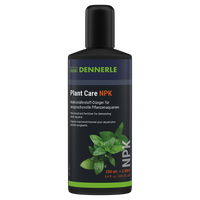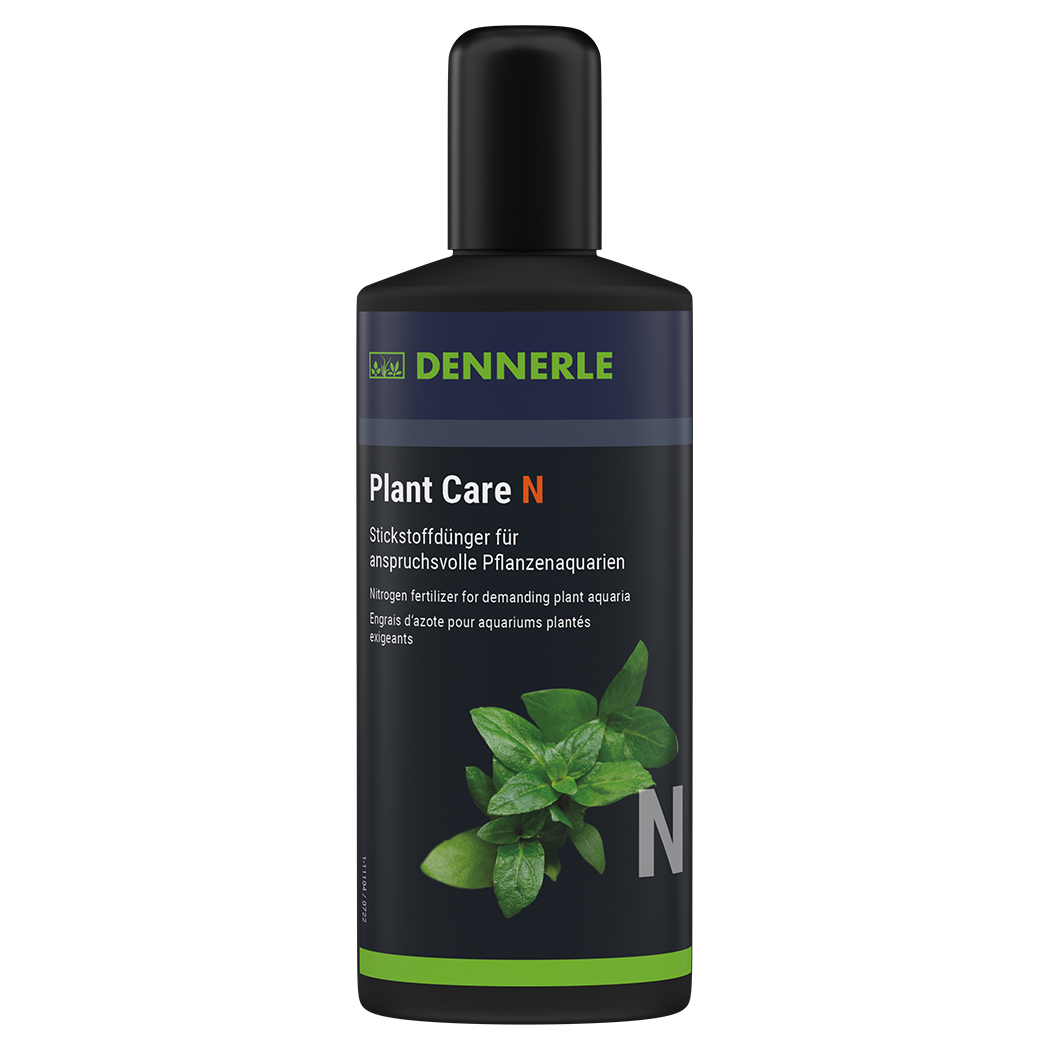
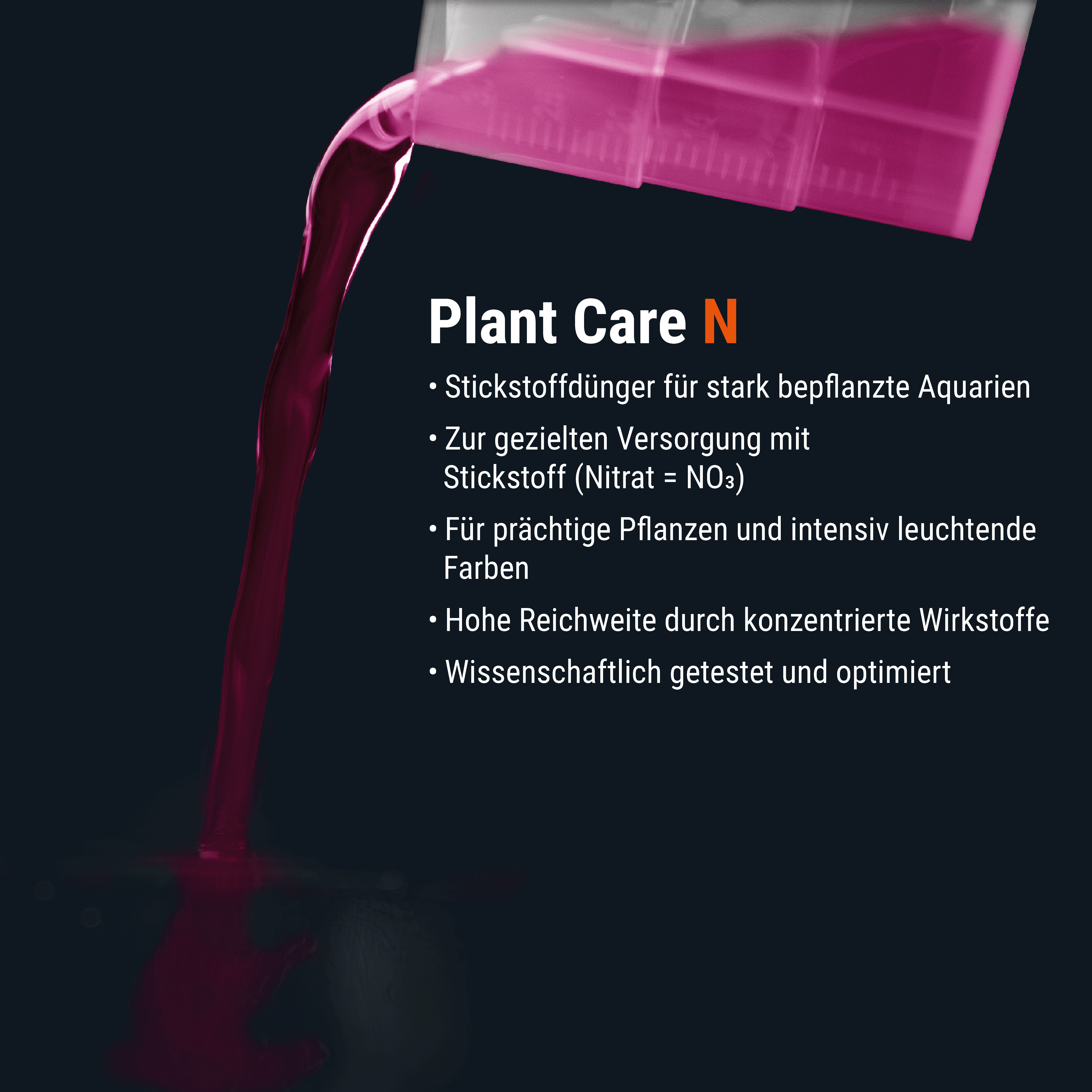
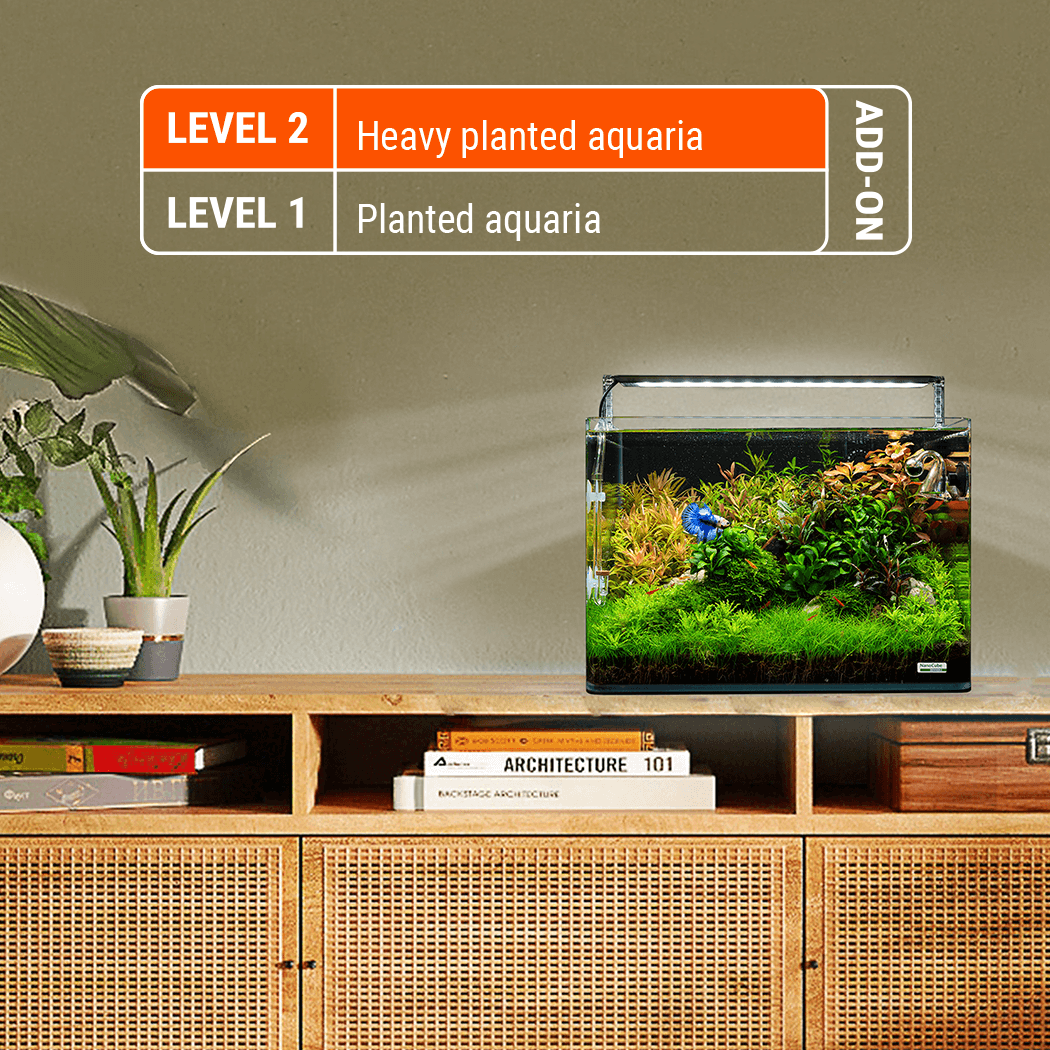
Plant Care N
Nitrogen fertilizer for demanding plant aquariums
- Nitrogen fertilizer for heavily planted aquariums
- For the targeted supply of nitrogen (nitrate)
- For magnificent plants and intensely bright colors
- High range thanks to concentrated active ingredients
- Scientifically tested and optimized


Often bought together

Plant Care N
Plant Care N
Aquarium plants need around 20 different nutrients to grow healthily. Nitrogen is particularly important. Nitrogen is a macronutrient and is needed in the largest amount after carbon (as CO 2 ). Alongside light and CO 2 , it is the most important prerequisite for balanced, healthy plant growth.
What is nitrogen needed for in the aquarium?
Plants need nitrogen to build numerous organic compounds, particularly for the synthesis of vital amino acids. Amino acids are the building blocks of proteins and enzymes and have central functions in plant metabolism. Nitrogen is also needed for the formation of chlorophyll. Plants can absorb nitrogen in various chemical forms, particularly as ammonium, nitrate and urea. In the aquarium, nitrogen is primarily present as nitrate. Nitrate can be stored in the plant cells and transported within the plant. The addition of nitrogen is not necessary in normal, planted community aquariums, as it usually enters the aquarium in sufficient or often even excessive amounts via the food. The situation is different with demanding plant aquariums (e.g. aquascaping aquariums, Holland aquariums). They have an above-average nutrient requirement, especially for macronutrients. Such plant aquariums are characterized by
- dense planting (more than 70 – 80 % of the soil surface)
- many fast-growing species
- lots of light (30 – 60 lumens/liter or more)
- CO 2 fertilization
- 30 – 50 % partial water change per week
- no or little fish stock (but with shrimp)
Detecting Nitrate Deficiency in the Aquarium
In these types of aquariums, a nitrogen deficiency can quickly occur. The entire plant turns yellow or yellow-green. A deficiency first shows up in the older leaves. They appear more yellow than the new ones, but usually do not die. In some plants, the leaves become glassy and almost transparent or turn slightly purple. Growth is significantly slowed. Inhibition of plant growth usually leads to algae problems.
Fixing Nitrate Deficiency in the Aquarium
For demanding plant aquariums, it is therefore very sensible to keep an eye on the nitrate content and top it up if necessary. Each aquarium has a specific nutrient consumption depending on the number of plants, type of plant, animal population, feeding, water changes and growing conditions (amount of light, lighting time, CO2 addition, filter technology, etc.). The amount of fertilizer required should therefore be determined individually for each aquarium. If the aquarium needs all three macronutrients N, P and K, the use of Dennerle Plant Care NPK is recommended. The nutrient ratios have been chosen so that all macronutrients are absorbed by the plants in equal proportions. Even with long-term, regular use, deficiencies or disadvantageous accumulations of individual nutrients cannot occur. Biological balance is particularly important with macronutrients, i.e. the nutrients should always be present in a certain ratio to one another. Nutrient imbalances should be avoided as they usually lead to algae problems. Under special circumstances, the aquarium may have an above-average need for nitrogen. There is also tap water that contains enough phosphate and potassium, but too little nitrogen. In these cases, Dennerle Plant Care N should be used to supply the plants with the right amount of nitrogen. We recommend measuring the nitrate content weekly and dosing Plant Care N accordingly. Nitrate can be measured precisely and reliably using aquarium tests. Simple immersion tests also offer sufficient accuracy, e.g. the Dennerle WaterTest 6in1 . If you have measured and fertilized regularly for several weeks, you can see at which level the measured values settle and what amount of nitrate the aquarium needs. You can then add the determined weekly dose of Plant Care N as standard and increase the measuring intervals to 2 to 4 weeks with a clear conscience. A macronutrient fertilizer must always be used in combination with a micronutrient fertilizer (complete iron fertilizer). For a complete supply of nutrients and the best possible plant growth, we recommend combining it with Plant Care Pro . For lush plant growth and healthy fish and shrimp, we recommend a partial water change of 25% to 50% per week. This removes waste and inhibitors and prevents nutrient imbalances.
dosage
The fertilizer can be dosed precisely and accurately: 1 ml per 100 L adds 1 mg/L of nitrate. Plant Care N can be used as a weekly fertilizer or daily fertilizer.
The right fertilizer for my aquarium.
| Aquarium |
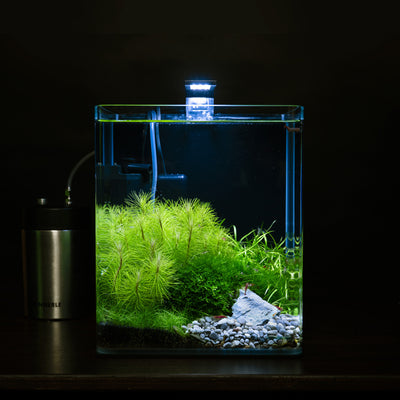
Easy planted aquarium
|
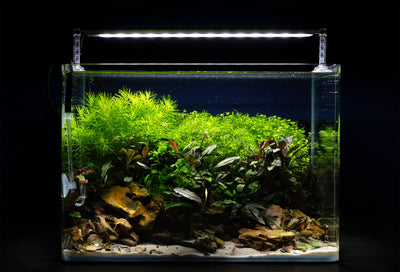
For well-planted aquarium
|
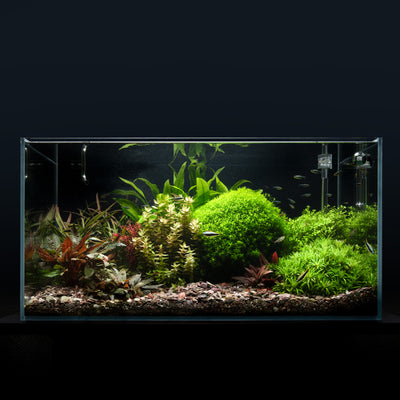
For well-planted, large aquarium
|
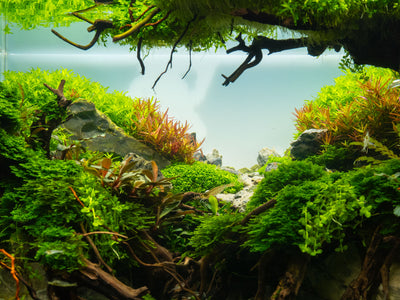
For aquascapes
|
| Products |
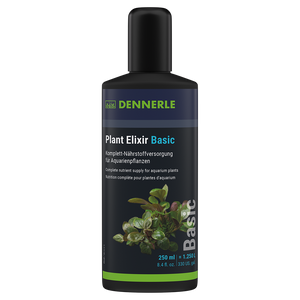
|
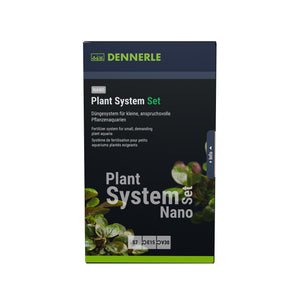
|
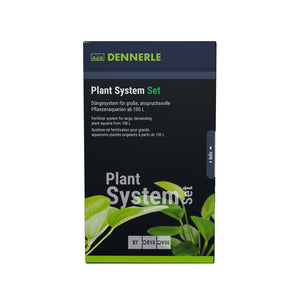
|
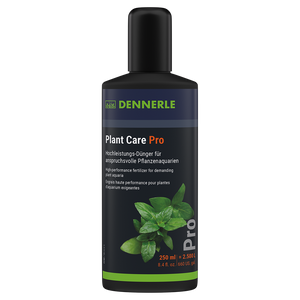
|
| Planting | ||||
| With no or little fish stock | ||||
Plant Care N in detail
Dosage and Application
Product data
Plant Care N
Item No.
Barcode
Packaging Dimensions (WxHxD)
Declaration
Type
NK fertilizer solution 2 + 2.2Main components
2 % N total nitrogen = nitrate nitrogen; 2.2 % K₂O water-soluble potassium oxideSecondary constituents
2.3 % Na water-soluble sodium, 1.15 % organic substanceprocessing agent
For preservation: potassium sorbateApplication agents
dyeStorage instructions
Store at room temperature. Protect from heat and frost. Keep out of reach of children and pets.application specification
Only for fertilizing ornamental plants in aquariums. For detailed instructions for use and dosage, see the packaging text. Note: Official advice takes precedence.Product safety information
Manufacturer
- Company name: Dennerle GmbH
- Address: Industriestraße 4, 66981 Münchweiler, Germany
- Email: service@dennerle.com
- Phone: +49 6395 9107-440
